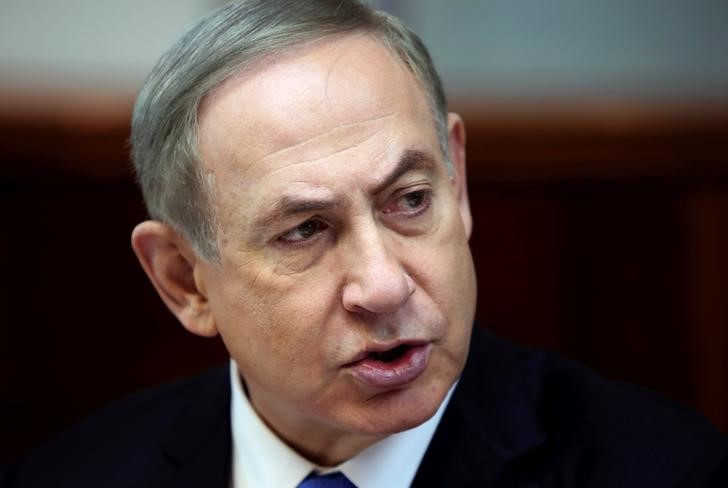By Jeffrey Heller and Arshad Mohammed
JERUSALEM/WASHINGTON (Reuters) - Israeli Prime Minister Benjamin Netanyahu said on Sunday he would discuss with Donald Trump the West's "bad" nuclear deal with Iran after the U.S. president-elect enters the White House.
Speaking separately to a conference in Washington, Netanyahu and U.S. Secretary of State John Kerry clashed over the Iran deal and Israel's settlement construction on the occupied West Bank, which Kerry depicted as an obstacle to peace.
During the U.S. election campaign, Trump, a Republican, called last year's nuclear pact a "disaster" and "the worst deal ever negotiated". He has also said it would be hard to overturn an agreement enshrined in a U.N. resolution.
"Israel is committed to preventing Iran from acquiring nuclear weapons. That has not changed and will not change. As far as President-elect Trump, I look forward to speaking to him about what to do about this bad deal," Netanyahu told the Saban Forum, a conference on the Middle East, in Washington, via satellite from Jerusalem. Trump takes office on Jan. 20.
Netanyahu has been a harsh critic of the nuclear deal, a legacy foreign policy achievement for Democratic President Barack Obama. But he had largely refrained from attacking the pact in recent months as Israeli and U.S. negotiators finalised a 10-year, $38 billion military aid package for Israel.
Before the nuclear agreement, Netanyahu, a conservative, strained relations with the White House by addressing the U.S. Congress in 2015 and cautioning against agreeing to the pact.
The Obama administration promoted the deal as a way to suspend Tehran's suspected drive to develop atomic weapons. In return, Obama agreed to lift most sanctions against Iran. Tehran denies ever having considered developing nuclear arms.
Under the deal, Iran committed to reducing the number of its centrifuges by two-thirds, capping its level of uranium enrichment well below the level needed for bomb-grade material, reducing its enriched uranium stockpile from around 10,000 kg to 300 kg for 15 years, and submitting to international inspections to verify its compliance.
"The problem isn't so much that Iran will break the deal, but that Iran will keep it because it just can walk in within a decade, and even less ... to industrial-scale enrichment of uranium to make the core of an arsenal of nuclear weapons," Netanyahu told the forum.
'NO, NO, NO AND NO'
Appearing later in person, Kerry defended the deal, arguing its monitoring provisions provided the ability to detect any significant uptick in Iran's nuclear programs, "in which case every option that we have today is available to us then."
Kerry pushed Israel to rein in construction of Jewish settlements on West Bank land it occupied in a 1967 war that the Palestinians want for a state. He also bluntly rejected the idea advanced by some Israelis that Israel might make a separate peace with Arab nations that share its concerns about Iran.
"No, no, no and no," Kerry said. "There will be no advance and separate peace with the Arab world without the Palestinian process and Palestinian peace."
On settlements, Kerry said: "There’s a basic choice that has to be made by Israelis ... and that is, are there going to be continued settlements ... or is there going to be separation and the creation of two states?"

The central issues to be resolved in the conflict include borders between Israel and a future Palestinian state, the future of Jewish settlements in the West Bank, which most nations regard as illegal, the fate of Palestinian refugees and the status of Jerusalem.